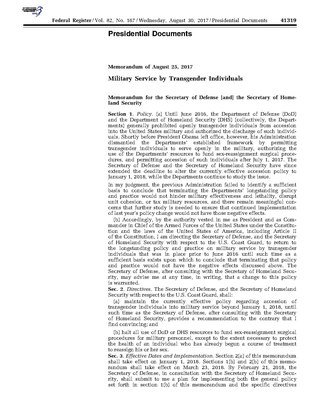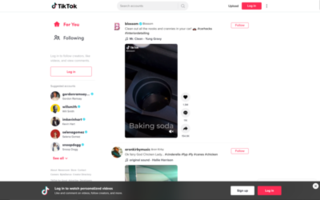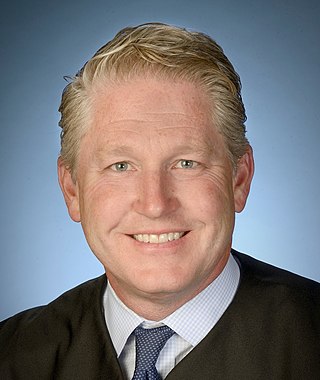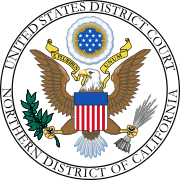The Committee on Foreign Investment in the United States is an inter-agency committee in the United States government that reviews the national security implications of foreign investments in the U.S. economy.

The International Emergency Economic Powers Act (IEEPA), Title II of Pub. L.Tooltip Public Law 95–223, 91 Stat. 1626, enacted October 28, 1977, is a United States federal law authorizing the president to regulate international commerce after declaring a national emergency in response to any unusual and extraordinary threat to the United States which has its source in whole or substantial part outside the United States. The act was signed by President Jimmy Carter on December 28, 1977.

In the United States, Section 230 is a section of the Communications Act of 1934 that was enacted as part of the Communications Decency Act of 1996, which is Title V of the Telecommunications Act of 1996, and generally provides immunity for online computer services with respect to third-party content generated by its users. At its core, Section 230(c)(1) provides immunity from liability for providers and users of an "interactive computer service" who publish information provided by third-party users:
No provider or user of an interactive computer service shall be treated as the publisher or speaker of any information provided by another information content provider.
WeChat or Weixin in Chinese ; lit. 'micro-message') is a Chinese instant messaging, social media, and mobile payment app developed by Tencent. First released in 2011, it became the world's largest standalone mobile app in 2018 with over 1 billion monthly active users. WeChat has been described as China's "app for everything" and a super-app because of its wide range of functions. WeChat provides text messaging, hold-to-talk voice messaging, broadcast (one-to-many) messaging, video conferencing, video games, mobile payment, sharing of photographs and videos and location sharing.

ByteDance Ltd. is a Chinese internet technology company headquartered in Haidian, Beijing and incorporated in the Cayman Islands.

The Presidential Memorandum on Military Service by Transgender Individuals, officially the Presidential Memorandum for the Secretary of Defense and the Secretary of Homeland Security, is the 27th presidential memorandum signed by U.S. President Donald Trump on August 25, 2017. The intent was to prevent transgender people from serving in the U.S. military, on the basis that they would be a financial burden due to sex reassignment procedures and associated costs. Federal courts delayed the implementation of this rule by issuing four injunctions. On January 22, 2019, however, the U.S. Supreme Court allowed the Trump administration's ban to take effect.

TikTok, whose mainland Chinese counterpart is Douyin, is a short-form video hosting service owned by Chinese internet company ByteDance. It hosts user-submitted videos, which can range in duration from three seconds to 60 minutes. It can be accessed with a smart phone app.

Carl John Nichols is a United States district judge of the United States District Court for the District of Columbia and a judge of the United States Foreign Intelligence Surveillance Court.

Likee is a short-video creation and sharing app, available for iOS and Android operating systems. It is owned by Singaporean tech firm Likeme Pte. Ltd., whose parent company is JOYY Inc. The founder of Likee is Jason Hu, entrepreneur from Singapore, who previously worked for JOYY.

CamScanner is a Chinese mobile app first released in 2011 that allows iOS and Android devices to be used as image scanners. It allows users to 'scan' documents and share the photo as either a JPEG or PDF. This app is available free of charge on the Google Play Store and the Apple App Store. The app is based on freemium model, with ad-supported free version and a premium version with additional functions.
The following is a timeline of the presidency of Donald Trump during the third quarter of 2020, from July 1 to September 30, 2020. To navigate quarters, see timeline of the Donald Trump presidency.

Triller is an American video-sharing social networking service that was first released for iOS and Android in 2015. The service allows users to create and share short-form videos, including videos set to, or automatically synchronized to, music using artificial intelligence technology. It initially operated as a video editing app before adding social networking features.

TikTok v. Trump was a lawsuit before the United States District Court for the District of Columbia filed in September 2020 by TikTok as a challenge to President Donald Trump's executive order of August 6, 2020. The order prohibited the usage of TikTok in five stages, the first being the prohibition of downloading the application. On September 27, 2020, a preliminary injunction was issued by Judge Carl J. Nichols blocking enforcement of that executive order. The lawsuit, by then captioned TikTok v. Biden, was dismissed in July 2021, following the Biden Administration's rescission of the executive order.

Many countries have imposed past or ongoing restrictions on the video sharing social network TikTok. Bans from government devices usually stem from national security concerns over potential access of data by the Chinese government. Other bans have cited children's well-being and offensive content such as pornography.
There are reports of TikTok censoring political content related to China and other countries as well as content from minority creators. TikTok says that its initial content moderation policies, many of which are no longer applicable, were aimed at reducing divisiveness and were not politically motivated.
In 2020, the United States government announced that it was considering banning the Chinese social media platform TikTok upon a request from then-president Donald Trump, who viewed the app as a national security threat. The result was that TikTok owner ByteDance—which initially planned on selling a small portion of TikTok to an American company—agreed to divest TikTok to prevent a ban in the United States and in other countries where restrictions are also being considered due to privacy concerns, which themselves are mostly related to its ownership by a firm based in China.
TikTok has sparked concerns over potential user data collection and influence operations by the Chinese government, leading to restrictions and bans in the United States.

The Protecting Americans from Foreign Adversary Controlled Applications Act (PAFACA) is an act of Congress that was signed into law on April 24, 2024, as part of Public Law 118-50. It would ban social networking services within 270 to 360 days if they are determined by the president of the United States and relevant provisions to be a "foreign adversary controlled application"; the definition covers websites and application software, including mobile apps. The act explicitly applies to ByteDance Ltd. and its subsidiaries—including TikTok—without the need for additional determination. It ceases to be applicable if the foreign adversary controlled application is divested and no longer considered to be controlled by a foreign adversary of the United States.
TikTok has been involved in a number of lawsuits since its founding, with a number of them relating to TikTok's data collection techniques.

TikTok, et al. v. Garland is a lawsuit brought against the United States government. Chinese internet technology company ByteDance and its subsidiary TikTok allege that the Protecting Americans from Foreign Adversary Controlled Applications Act, an act of Congress that bans certain apps unless sold by their owners, violates the First Amendment by imposing an unfeasible deadline for divestment, effectively removing the app.










